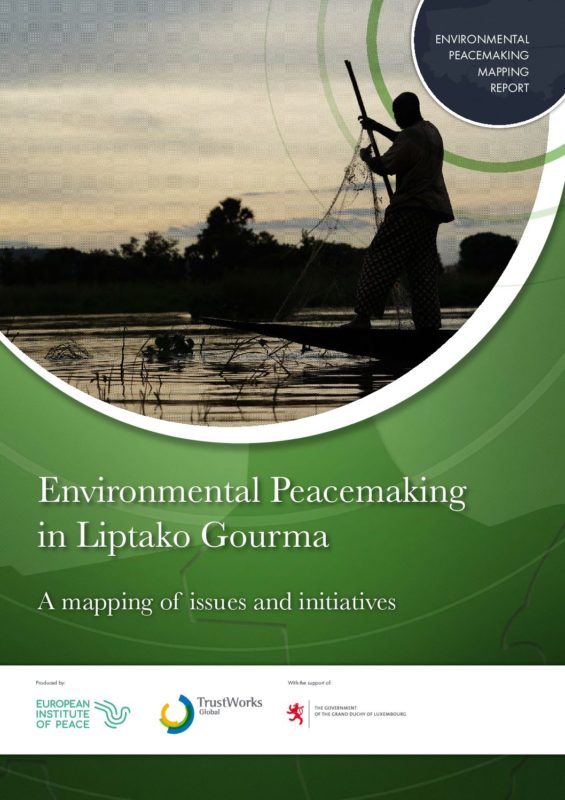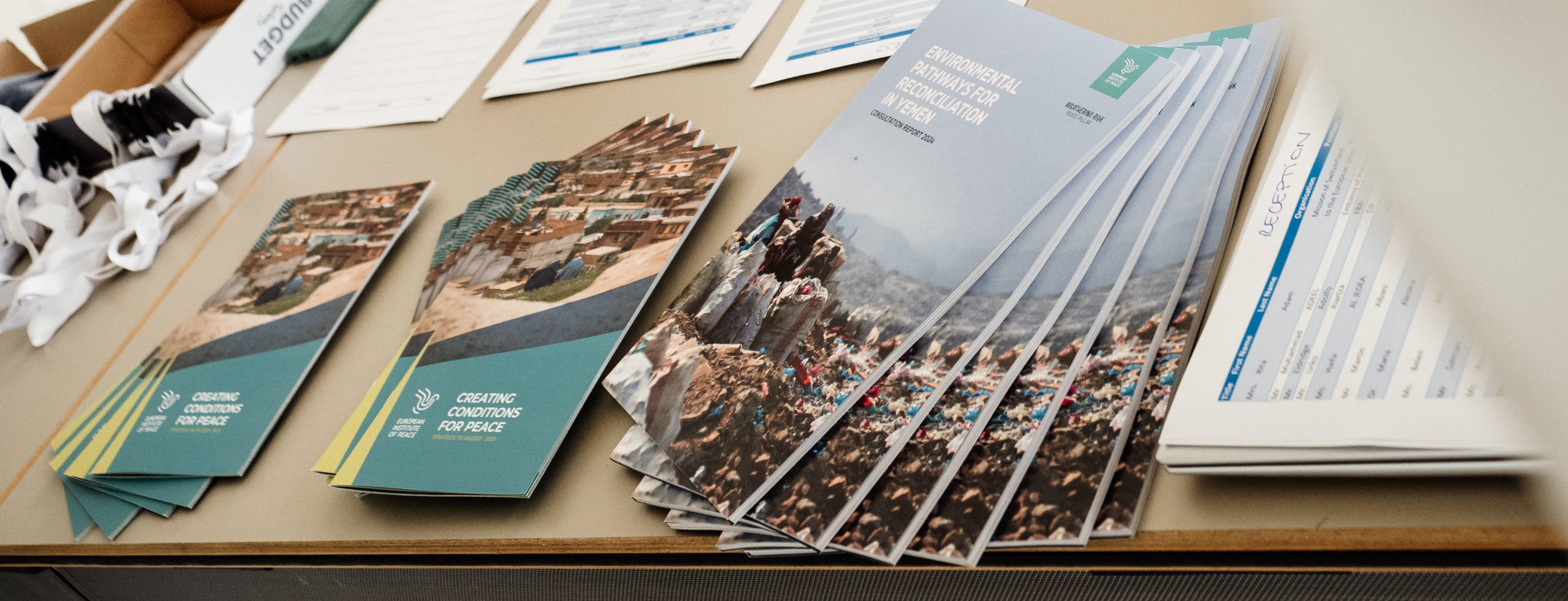Environmental Peacemaking in Liptako Gourma: A Mapping of Issues and Initiatives

The present “mapping report” is the result of the first phase of the project “Environmental Peacemaking in Liptako Gourma”, implemented jointly by the European Institute of Peace (EIP) and TrustWorks Global (TWG) with the support of the Directorate of Defence of the Grand Duchy of Luxembourg. The project assists peace initiatives in the Liptako Gourma region on the borders of Burkina Faso, Mali, and Niger. It aims to work with these initiatives to better address the environment-related drivers of conflict and harness cooperation over shared natural resources and common environmental challenges as a way to promote peace.
The mapping draws upon: in-person consultations conducted in Bamako, Ouagadougou and Niamey between March and June 2022; a literature review; and, a first regional workshop held in Niamey in December 2022. Rather than an exhaustive list of environment-related conflicts and initiatives, the mapping provides an overview and analysis of environmental and natural resources-related conflicts in the region as well as a typology of actors involved. It also offers a sample of initiatives deemed relevant to the “environmental peacemaking” concept and practice – either because they are peacemaking processes in which an environmental approach could be strengthened, or because they are environmental (and natural resource-related) initiatives on which a peace approach could be strengthened.
Preliminary consultations with local actors emphasized the relevance of applying an environmental and natural resources lens to peacemaking efforts in the Liptako Gourma region. Many mediation actors active in the region recognize that while they largely focus their efforts on “putting out fires” and brokering local agreements to halt violence, the root causes of many local conflicts related to access to and sharing of natural resources often remain unaddressed. While there is an intuition that focusing on including natural resources can lead to better mediation outcomes and natural resource management, mediation actors do not necessarily have the relevant tools and resources to achieve environmental peace dividends.
These consultations also highlighted the fact that there are already many peacemaking actors and initiatives –notably at the local level – and that there is little appetite for more stand-alone peacemaking initiatives or strategies. However, there is a need to complement existing initiatives with mediation tools and expertise in environmental and natural resources governance. Many local actors consulted also cautioned that while an increased focus on environmental and natural resources in peacemaking is needed, it should not overlook the structural political, security and economic drivers of conflict. A greater focus on environment and natural resources should not lead to “depoliticizing” conflicts and or weakening peacemaking efforts but should instead strengthen efforts to address the drivers of conflict.

